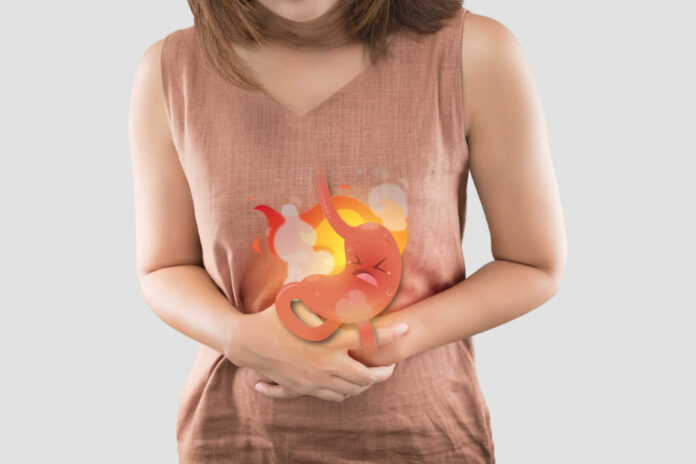
GERD stands for Gastroesophageal Reflux Disease.
Breaking that big term down into smaller parts can illustrate what it means.
Gastro comes from the Greek word for stomach.
The esophagus is the muscular tube that food passes through on its way from your mouth to your stomach.
Reflux means fluid is flowing in a backward direction.
GERD means the acid in your stomach is splashing back up into your esophagus.
The Importance of Stomach Acid
Our stomachs are lined with glands that produce hydrochloric acid and other digestive enzymes.
These acids break down the proteins we eat to be absorbed and used as ingredients for new cells and tissues.
Hydrochloric acid is very potent and corrosive, but the stomach lining is resistant to these digestive acids.
However, the esophageal tube is not protected from stomach enzymes. It can be easily damaged and burned by these corrosive acids.
The Lower Esophageal Sphincter
The esophagus and the stomach connect; this muscular valve is called the lower esophageal sphincter (LES).
This sphincter contains the acid safely in our stomach, but it is fragile and tends to grow weaker as we get older. Over time, the daily attrition of spicy foods, hot temperatures, alcohol, coffee, soda, and not-fully chewed food wear down the muscle fibers in this valve.
Acid Reflux
When the LES becomes weakened, stomach acid can flow back and damage the esophagus.
This irritation causes a heartburn sensation, though it isn’t related directly to the heart. The lower section of the esophagus runs behind the heart, so the pain is felt in that exact location.
This pain is typically felt in the center of the chest. It might also cause back pain at that exact point.
It may also cause nausea, difficulty swallowing, cough, and bad breath.
Reducing And Treating Reflux
The tissues in our body can regenerate. The damaged esophageal lining can be repaired in about two months if the irritation is stopped.
Acid Blockers
Your doctor might prescribe medications to block the production of stomach acid. This can relieve the symptoms of acid reflux and give the LES time to heal.
Don’t Eat Protein Before Laying Down
When you eat protein, your stomach produces more acid in response. If you lie down or go to bed right after, that horizontal position makes it easy for acid to flow back into the esophagus.
Chew Your Food Thoroughly
Swallowed food should be chewed into a smooth paste before it goes down your throat. Chunks of unchewed food will stretch out and weaken that sphincter.
If It Makes Your Reflux Worse, Don’t Eat It
Your GERD won’t get better if you continue eating the same foods that caused it.
Losing weight should also relieve the pressure of fat pushing on that valve.
Talk to your doctor if you continue to have symptoms. They can rule out other causes and may be able to provide a more comprehensive treatment plan for you.






















